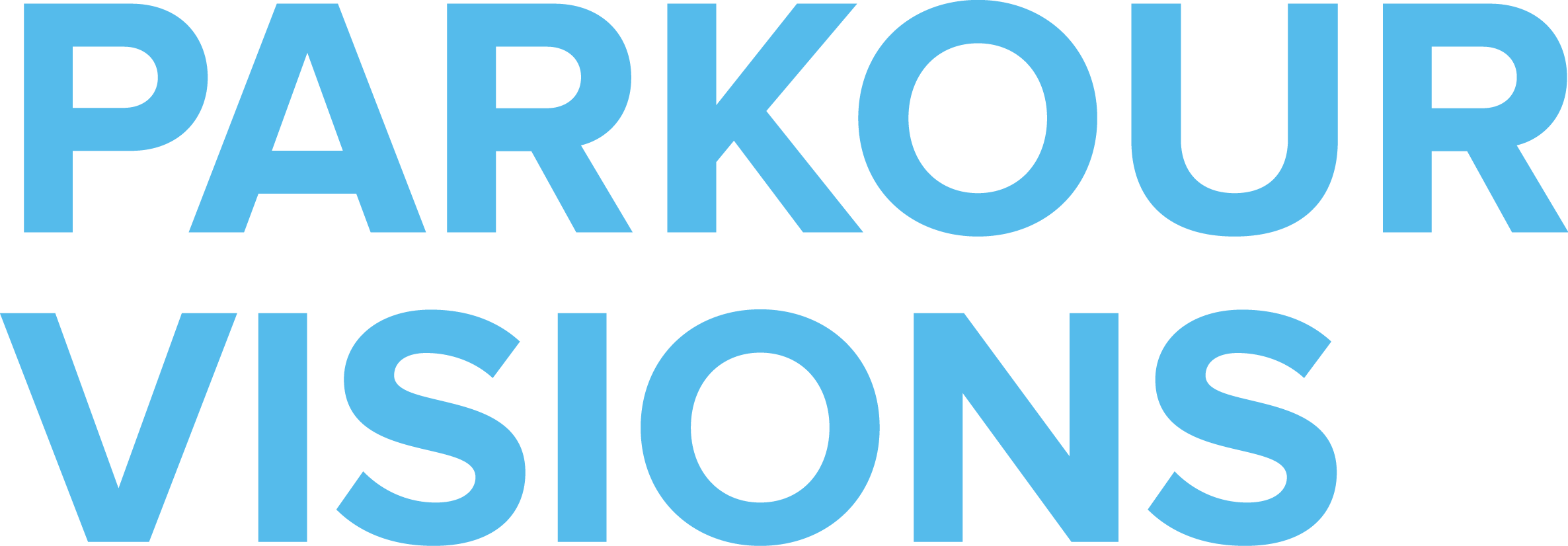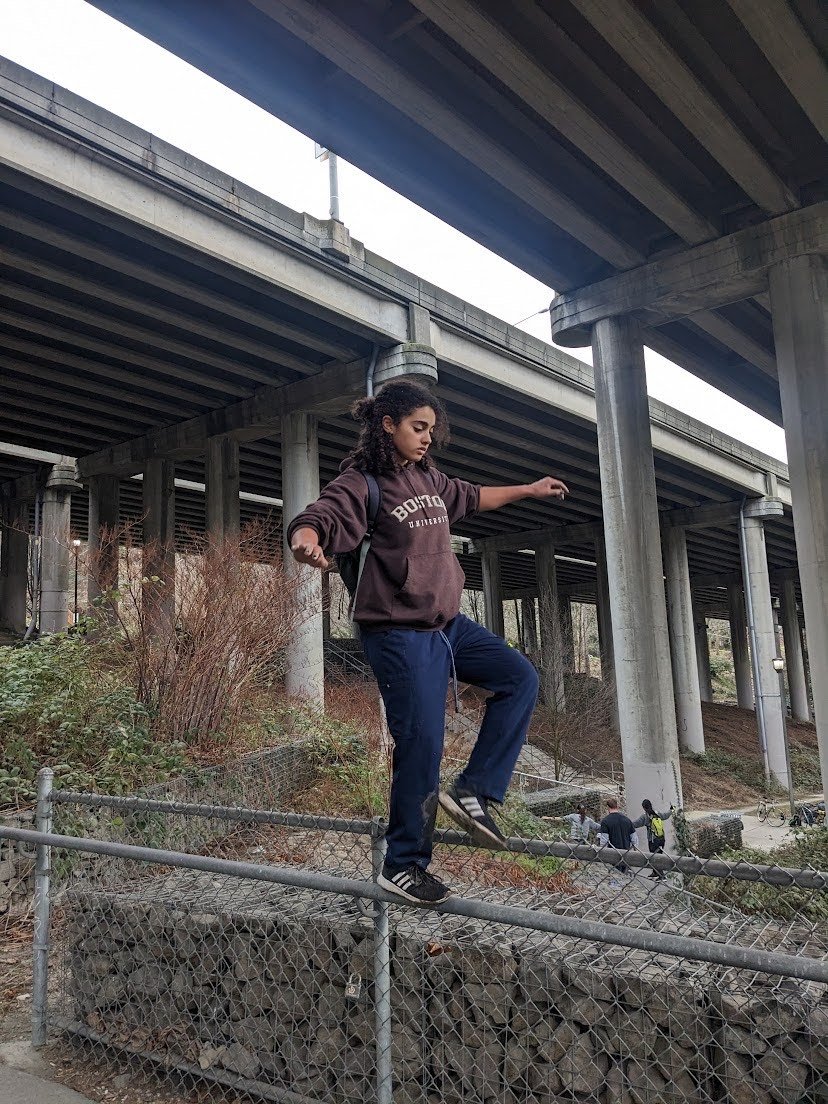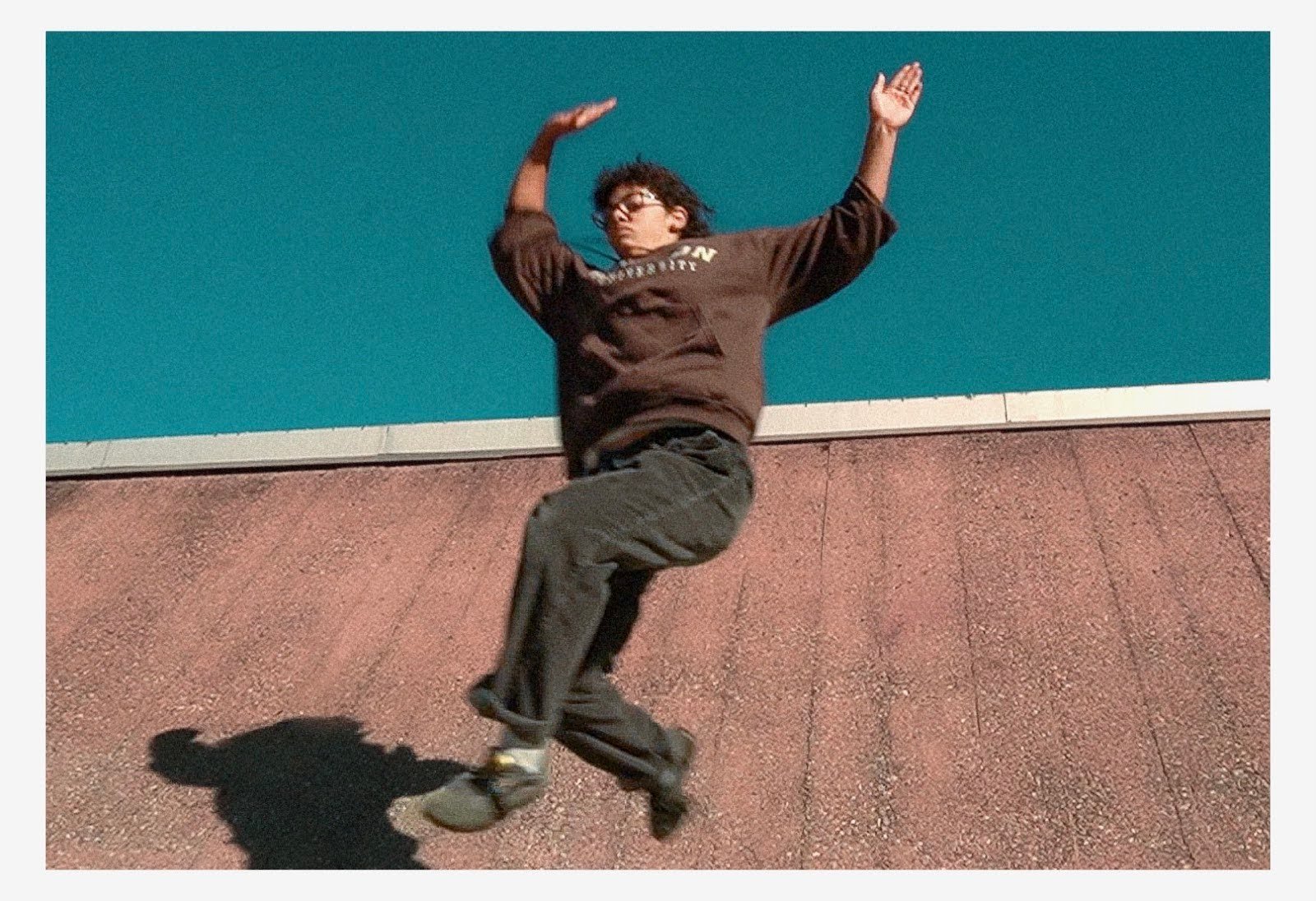PKV Community Spotlight: Gaia Corvino
Community Spotlight highlights someone who is very involved in the PKV community.
Gaia is a go-getter. She works hard and takes initiative. Gaia started parkour through PKV classes in fall of 2021, and since then, she joined teen’s team, participated in community events, took Leap to Lead, the PKV coach training program, and started coaching parkour with PKV. Outside of parkour, she trains just as hard. She takes dual highschool college classes, is in the highschool drumline, is a lead sound tech, president of the film club, and wants to go to college for film. She must have a time turner or something to make it all work!
What got you into parkour?
I had to stop doing roller derby because of covid, which was a bummer, so my mom introduced the idea of parkour classes.
What’s your favorite thing about parkour?
The community. The parkour community is just so great and make it so accessible that it’s something I want to stick through even when the movement itself gets really hard.
I don’t know what the community is like in other places, but here in Seattle it’s really cool cuz I see a lot of queer and women influences.
Tell me a little about Teen Team.
I’m enjoying teen team a lot. When I first started parkour, I wasn’t seeing a lot of teens. It was mostly older folks, so going to some of those events was a little weird because I was 16 and going to an event where most people were in their 30s. Now that there’s Teen Team, I get to do a movement that I enjoy and I get to relate it to someone that’s closer to my age. I still really enjoy it, the community is great, but sometimes it's nice to also be able to relate to folks closer to my age. There’s a lot more people this fall in Teen Team, and I’ve seen more teens go out to community events and that’s really nice.
How did you get into coaching?
I wasn’t intending on coaching at first. I did the Leap to Lead, the coach training program, for fun spring of last year, and as the program was wrapping up, folks came to me and told me “Hey we need coaches for the summer and if that’s something that you’re interested in, you can apply”. I thought “That’s sick, I’ve always liked working with kids and I like parkour, and getting to share that with new people is fun.” I’ve just stuck around since then.
How has coaching changed your relationship to parkour?
When I first started parkour, I was in a play mindset. That’s the way the curriculum works, do games, have fun, you can look silly if you want to. As I kept doing it, I started to take myself a little bit more seriously, and as I got back into coaching, I had to purposely put more play back into the movement for myself. Having an excuse to be less serious about my movement and focus on getting other people to have fun with it was a good shift for me.
What’s your biggest challenge in coaching?
The biggest challenge in coaching was to get buy-in. Kids come in with a lot of expectations about how things are supposed to look or are supposed to feel.
What’s your biggest challenge in parkour?
The biggest challenge in parkour has also been managing expectations, but in a different way. I tend to expect a lot from myself. In the beginning I would train super hard and get injured because I wouldn't know my own limits and I wouldn’t know where to stop. Being able to manage where I am right now and work forward from there has been something that I’m continually trying to do.
Has practicing parkour affected your life outside of parkour?
Practicing parkour has made me more confident. There’s something about going out in public and failing over and over again that breeds confidence in a different way. It’s made me more ok with not taking myself so seriously and that’s something that I’m working on in coaching and my personal life as well. Sometimes in the social bubbles of highschool it gets really easy to take yourself so seriously in a very small environment, and going outside of that group and meeting new people and just seeing how many different types of humans there are in the world has made me come out of my shell a little bit.
What does not taking yourself seriously mean to you?
Not taking myself seriously means being ok with failing in front of other people, and being ok when people don’t understand what I’m doing. That’s been a big thing in training and in life, people won’t always get what you’re trying to do, and doing it anyway even though they don’t understand has been a big thing that parkour has been able to teach me.
About the Author
Sheep Zhang started training parkour in 2016, and the practice and the community have been a major part of her life ever since. Sheep sees parkour as a powerful tool for building community and building connection to the physical environment, as well as a versatile and nuanced medium for self-expression and self-discovery.



